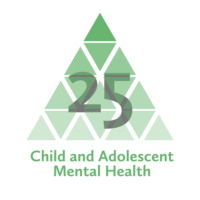Eating disorders
-

Most cited CAMH paper #9 of 25: Review: A systematic review of the impact of physical activity programmes on social and emotional well‐being in at‐risk youth
David R. Lubans, Ron C. Plotnikoff, Nicole J. Lubans.
Read more
Key Practitioner Message includes; Clinicians working with at‐risk youth are encouraged to consider specific physical activity programmes to support social and emotional well‐being and general health in this group -

Most cited CAMH paper #17 of 25: Teachers’ Recognition of Children’s Mental Health Problems
Maria E. Loades, Kiki Mastroyannopoulou.
Read more
Key Practitioner Message includes; Teachers were generally good at recognising the existence and severity of symptoms of problems (behavioural or emotional) presented by a child described in a vignette. -

Most cited CAMH paper #25 of 25: Review: The impact of motor development on typical and atypical social cognition and language: a systematic review
Hayley C. Leonard, Elisabeth L. Hill.
Read more
Key Practitioner Message includes: Significant relationships exist between the development of motor skills, social cognition, language and social interactions in typical and atypical development -

Eating Disorders Editorial
Welcome to this edition of The Bridge which focuses on eating disorders.
Read more -

Eating Disorders in Children and Young People
In most cases, eating disorders start in adolescence, but they are often not picked up until adulthood. Current research supports the use of several types of psychotherapies, including Cognitive Behavioural Therapy (CBT), interpersonal and family-based therapies, as well as some medications for the treatment of eating disorders.
Read more -

Autism Spectrum Disorder Clinical Skills Update – special interest focus
This event is sold out.
- Event type
- Skills Update
- Location
- London
-

In Conversation… Eating Disorders with Dr. Dasha Nicholls
In this podcast, Dr. Dasha Nicholls talks about eating and feeding disorders in children and young people.
Read more -

Risk of serious harm to self, and others
Risk of serious harm, to self and others, is an important topic to discuss. When should we be concerned, and what can we do? With the rise in the prevalence of mental health difficulties in children and young people, there is an increasing need to recognise the range and degree of risks presented by young […]
- Event type
- Conference
- Location
- Southampton
-

Body Dysmorphic Disorder with Dr Bruce Clarke and Dr Amita Jassi
Body Dysmorphic Disorder is a common, yet typically under-recognised and challenging to treat condition. Dr Bruce Clarke and Dr Amita Jassi highlight the common issues clinicians face when assessing and treating BDD and how to overcome these. ACAMH members can now receive a CPD certificate for watching this recorded lecture.
Read more -

Raising Awareness for Body Dysmorphic Disorder
BDD is not something that clinicians always think of, so what are the symptoms that we should be looking out for and what evidence-based treatments can help relieve the symptoms that people experience?
Read more
